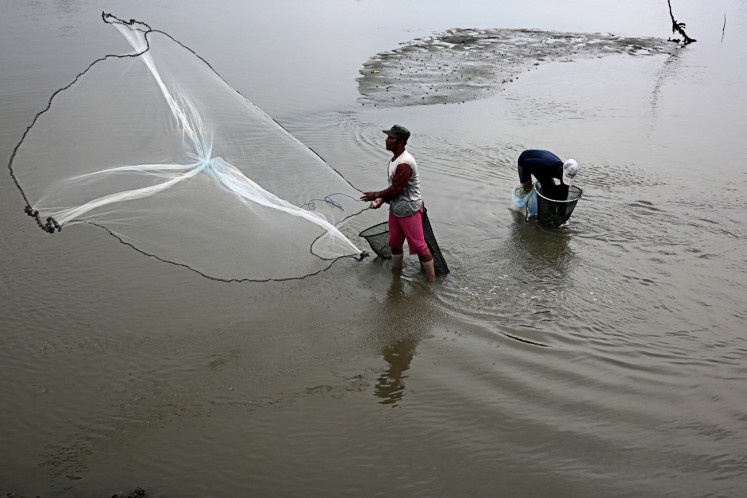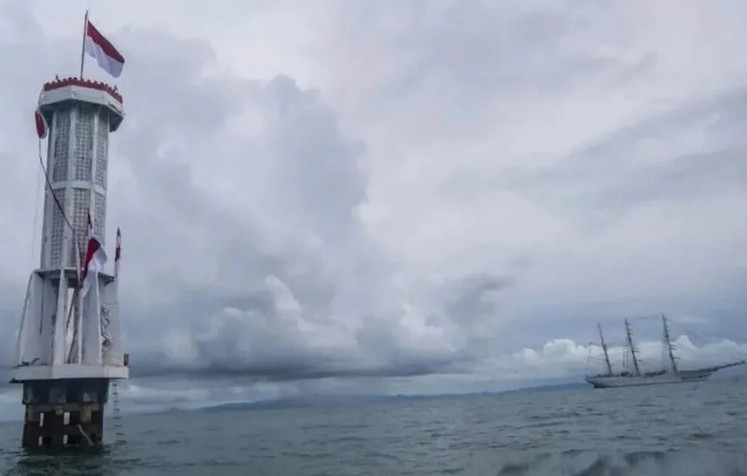Popular Reads
Top Results
Can't find what you're looking for?
View all search resultsPopular Reads
Top Results
Can't find what you're looking for?
View all search resultsKopassus: A view from within
The Army’s Special Forces (Kopassus), as its name suggests, is an elite military unit whose tasks differ from other regular units within the Indonesian Military (TNI)
Change text size
Gift Premium Articles
to Anyone
The Army’s Special Forces (Kopassus), as its name suggests, is an elite military unit whose tasks differ from other regular units within the Indonesian Military (TNI).
Because of its specialized nature, Kopassus, is present in every war or non-war military operation in Indonesia or overseas. Its troops only engage in special operations, or when security threats have escalated to an extraordinarily dangerous level that requires the involvement of personnel with skills and capabilities above the average troops of regular military units.
And it is because of its special tasks — often kept secret — that Kopassus has repeatedly been the subject of severe public criticism, especially when its operations have ended in failures or led to serious allegations of human rights violations. The public’s limited knowledge of Kopassus’ tasks and responsibilities has proven to be counterproductive, particularly when it is struggling to improve its image after a number of atrocities in the past were blamed on the elite unit.
Kopassus untuk Indonesia (Kopassus for Indonesia) is apparently meant to serve as answer to all of these criticisms. The book is indeed based on accounts and testimonies made by a number of Kopassus troops who have been involved in a wide variety of security operations in Indonesia and abroad, and people who sympathize with or are in favor of Kopassus.
However, this book — co-authored by Iwan Santosa and E.A. Natanegara — does not just contain statements or accounts by those in favor of the elite unit, but also includes statements acknowledging wrongdoings committed by Kopassus soldiers.
“We’ve never intentionally violated the people’s basic rights, but there are indeed cases where human rights violations have occurred. Those violating laws will be tried in military tribunal and convicted. The verdict on Tim Mawar [Rose Team, a team responsible for the kidnapping of activists in 1998] is one example …,” says Kopassus Legal Affairs Division chief Lt. Col. I Nyoman Suparta (Page 191).
No less important was a statement by Kopassus assistant chief of intelligence Col. Bambang Ismawan: “We were once the apparatus of the ruling elite. Kopassus now is the apparatus of the state … We are held accountable to the Indonesian people who, as taxpayers, sustain the state apparatus.” (Page 168)
Besides providing evidence of Kopassus’ involvement in a number of “traditional” military operations, this book also narrates the elite unit’s involvement in non-traditional military or security operations.
As a consequence of the end of the Cold War, armed forces around the world, including those in Indonesia, reoriented their operations and services. It is thus evident that Kopassus troops have been sent to various conflict and war zones in some parts of the globe, such as Sierra Leone, Sudan, Georgia and Lebanon, under the United Nations-led peacekeeping missions.
Due to its extreme capabilities, Kopassus also routinely deploys its troops to help safeguard Indonesian missions abroad, such as the Indonesian Embassy in The Hague and Wisma Duta in Wassenaar, both in the Netherlands, and the Indonesian Embassy in Port Moresby, Papua New Guinea.
Apart from presenting Kopassus’ success stories, the book also reveals a very rare account concerning the involvement of foreign nations in “fueling” separatism in a number of regions in Indonesia.
On page 94, for example, it mentions how foreign ships frequently intruded the waters off Aceh province and unloaded firearms, which were then used by the Free Aceh Movement (GAM) separatists to fight Indonesian soldiers. Similarly, supplies of firearms by foreigners also highlighted the 1999-2000 socio-religious conflict in Ambon, Maluku (page 115).
Despite hinting at foreign involvement in a number of separatist movements and conflicts in Indonesia, however, it remains unclear why both the authors do not mention the nationalities or identities of these foreign “arms suppliers”.
The book by Iwan and Natanegara in essence offers similar accounts and testimonies of the elite unit’s success stories as its predecessor, Kopassus: Inside Indonesia’s Special Forces, by American Ken Conboy. However, the latter is obviously a continuation of the former as it depicts Kopassus’ operations and public services from the early 1990s until December 2009 when it went to print. (The preceding book by Conboy illustrates the elite unit’s operations and services from the time of its inception in 1952 until the early 1990s.)
Kopassus untuk Indonesia, despite its relatively unilateral content, remains a valuable literary product as it helps enrich Indonesian literature. As American journalist Edward P. Morgan once said: “A book is the only place in which you can examine a fragile thought without breaking it, or explore an explosive idea without fear it will go off in your face. It is one of the few havens remaining where a man’s mind can get both provocation and privacy.” This latest book on Indonesia’s elite military unit is thus an
essential reference on Indonesian military affairs.
— Photo by P.J. Leo










